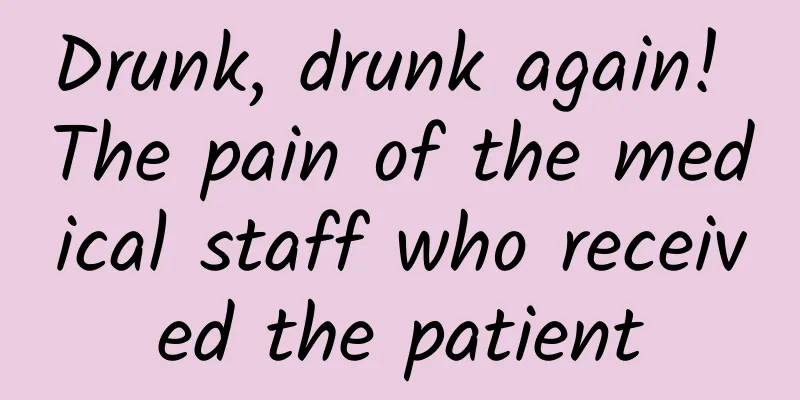【Health Lecture】Guide to Risk Prevention of Polypharmacy in the Elderly

|
In order to ensure the scientific effect of learning health knowledge in the "2024 China Elderly Health Knowledge Competition", the organizer has collected various health science articles suitable for the elderly from various hospitals. We will share them through the "Health Lecture Hall" column. Today, Mr. Wang Jie from the Second Affiliated Hospital of Qiqihar Medical College brought the "Manual for Preventing Risks of Multiple Medication Use in the Elderly", and welcomes elderly friends to learn. According to the data of the seventh national census, the proportion of the population aged 65 and above in my country has exceeded 13.5%. The trend of aging is unstoppable and can be compared to a silent frenzy. Not only has the number of elderly friends increased sharply, but the "gathering" of chronic diseases has also become the norm. 81.6% of elderly patients need to fight against multiple chronic diseases. In the context of this "multi-disease coexistence" alliance, the "clustering effect" of drugs is like a drug dance. The more drugs are involved, the more difficult it is to control the interaction between drugs, and the consequences are unimaginable. The body of the elderly is like an aging machine. The reaction speed is slow, and the regulatory function is also discounted. The "journey" of drugs in the body becomes extremely tortuous. There may be small episodes in each link of absorption, distribution, metabolism and excretion, which ultimately affect the concentration and efficacy of drugs. Clinical pharmacists are like "gatekeepers" of drug safety. They need to be vigilant and actively prevent potential drug conflicts. Individualized medication for the elderly must be more precise and careful. Look at this 79-year-old Mr. Wang, whose body is like a "medicine cabinet" with so many medicines that it's hard to keep track. In addition to the "life-saving drugs" prescribed by doctors, there are also various health products recommended by friends and popular products on the Internet. It's really a "drug party". Don't underestimate these medicines. Mixing them together is not a "drug party", but a hidden danger of drug interactions. Multiple medications are like seasonings, which may accidentally stir out unexpected "strange flavors". Pharmacists are party planners, ensuring that every "guest" can get along harmoniously, avoiding unnecessary collisions and accidents, and discovering which drugs are "good friends" and which may cause trouble together. Through their professional knowledge and experience, doctors can be more handy when prescribing and ensure the safety of patients' medication. For the healthy aging of Mr. Wang, we need to use drugs accurately, follow up regularly, and organize drug lists to ensure that the "drug party" does not become a "drug farce." Manual for the Prevention of Multiple Medication in the Elderly (Drug Interaction List) As they age, many seniors need to take multiple medications to manage chronic diseases. However, multiple medications may lead to drug interactions and increase the risk of adverse reactions. Drug interactions may affect the effectiveness of medications and even cause new health problems. Therefore, seniors should pay special attention when taking medications and make sure to communicate with their doctors about all medications they are taking, including prescription and over-the-counter drugs. Regularly evaluating drug treatment plans and reducing unnecessary medications can effectively reduce risks, promote healthy aging, and enjoy a happy old age. In this aging "dance", let every elderly friend dance this song safely and gracefully! About the Author Wang Jie, a clinical pharmacist with a master's degree in endocrinology from the Second Affiliated Hospital of Qiqihar Medical College, graduated from Tianjin Medical University and is a chief pharmacist. In 2021, he studied as a clinical pharmacist in endocrinology at Beijing Hospital. He serves as a member of the Diabetes Professional Committee of the Qiqihar Health Education Association. He actively participates in the management of chronic diseases such as diabetes. He has participated in national and provincial pharmaceutical professional knowledge and skills competitions and popular science competitions for many times and won awards. He is good at medication education, drug reorganization, prescription simplification, etc. for patients with chronic diseases such as diabetes, thyroid disease and osteoporosis, and promotes safe and rational use of medicines. |
<<: [Medical Q&A] Is it necessary to give children the chickenpox vaccine?
>>: Frequently getting up to urinate at night means kidney problems?
Recommend
Is it normal for a woman's lower left eyelid to twitch?
As the saying goes, "If your left eyelid twi...
How long does it take to do a fallopian tube scan?
Hysterosalpingography is a comparative examinatio...
How to distinguish whether the coffee is freshly ground or instant? What is the difference between freshly ground coffee and instant coffee?
We all know that coffee is a common drink. It has...
Ovarian cysts after egg retrieval
Ovarian cysts after egg retrieval is a very commo...
How to diagnose cervicitis? Six methods to know!
Cervicitis is a common and frequent disease among ...
Can the new coronavirus be transmitted through the air? Why should we open windows for ventilation when airborne viruses are transmitted?
Recently, the new coronavirus has many ways of tr...
Does cervical erosion affect fertility?
Cervical erosion is a very common female disease,...
Which part of the pig is bacon? How to make a bacon breakfast sandwich
Pork is the most popular and commonly eaten meat ...
Can I eat dried chili peppers during menstruation?
We know that women's bodies become very fragi...
Can breast cancer patients drink milk?
Many studies have found that consuming milk can r...
Is cupping good for girls?
In fact, cupping can bring many benefits to femal...
Symptoms and treatment of abnormal leucorrhea
Discharge is very important for women's gynec...
Acne around genitals
Acne in the private parts is a very worrying phen...
What causes diarrhea after giving birth?
After giving birth, women are very weak. If they ...









